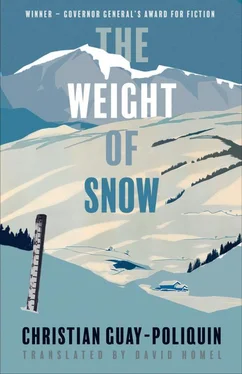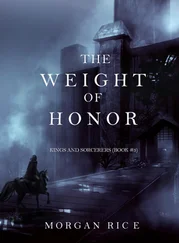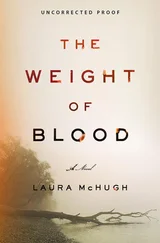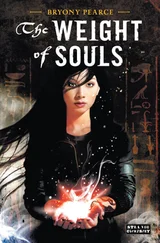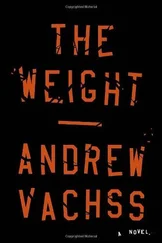I curl up in a ball, as far as possible from him and as near to the fire as I can be. Like a stray dog that has stopped trusting anyone. I think of my aunts and uncles again. I picture them laughing at the monstrosity of winter, and I figure a stubborn mind can conquer anything. I lost the map Joseph gave me, but I remember the “x” of their hunting camp by the river. And I remember the legend too, at the bottom of the map, that showed I am only a miniscule dot compared to the crushing power of the forest.
It has been snowing for five days straight. The ice storm is a distant memory, buried like a layer of sedimentary rock in a cliff face.
To keep warm we have burned most of the furniture in the house along with the shelves, the stair railings, and the doors to the rooms.
Our food supply is at its end. All our meals are the same, but Matthias eats whatever I put in front of him without any comments. He has refused to go back to cooking. Several times I question him about his secret provisions. Every time he denies, refutes my allegations, and ridicules me.
Yesterday, finally, my stubborn questioning angered him. He threw his book on the floor, picked up one of my ski poles, and threatened me, shouting. His eyes were hard and glittering like a vein of quartz. Fear turned my bones to liquid, but I stared at him and would not react. He took a deep breath, calmed down, and went back to his chair. A few moments later he was smiling; once again, he had succeeded in avoiding the question.
Day’s end settles over the landscape. The mountains turn purple with evening light. These are the first rays of sunshine we have seen in a long while. But night extinguishes them in no time.
Matthias is reading by candlelight. From time to time he glances down and plays with the hot wax, then goes back to his book. The flame lights his face from below, and the shadow of his nose joins the one cast by his eyebrows to draw a wide black stroke across his forehead. He looks like he is wearing a mask.
Later, as I am peeling potatoes, he sits next to me and begins playing pensively with the plastic moose that decorates his key ring.
I have a story for you, he announces, I just read it, so listen. A long time ago there lived a humble peasant. He was hard-working, but his fields were as poor as he was. One autumn, to his great surprise, his land bore fruit the way he could never have imagined. From that year on, his harvests were more abundant than the year before. But since he could not explain the miracle, he said nothing to anyone. He built an enormous barn and stored as much as he could. When it was full to the brim, he built another, bigger than the first. Destiny had smiled upon him, and he thanked his lucky stars. No misfortune could strike him. His future was assured: he would simply eat, drink, and rest. One day a neighbour came to visit to borrow a sickle, for his was broken and the fate of his family depended on his harvest. But he could not find the peasant anywhere, neither in the fields nor in the house. Worried, he searched the farm. When he saw the enormous, overflowing barns, he was astonished. And stupefied when he came across the peasant’s body on the ground. As if his soul had suddenly been taken from him, without warning, as he was strolling peacefully on his property.
I take the potatoes out of the water. We let them cool down, watching the steam lift into the air.
You see, Matthias says, that’s why I’m not hiding anything. If I had reserves, I’d share them with you.
I lift my eyebrows.
We need food, as well as candles and an oil lamp, he states. We need a lot more things, but we have to start with the essentials.
I don’t answer. I wonder what he has done with his revolver. Perhaps it is buried under the porch roof. Or concealed in a suitcase full of supplies. Unless it is still in his belt.
Tomorrow I’m going to the village, he continues, to ask if someone can help us out. If that doesn’t work, I’ll search the abandoned houses. There have to be some provisions somewhere.
I look up at him.
I’m going with you.
There’s no chance of that, he replies sharply. Tomorrow I’m going to the village and I’m going alone. You’d only slow me down. And if people see that you’re on your feet, they’ll say that we can get along on our own, and they won’t give us anything.
I’ll help you search the empty houses.
Look at your legs, he insists, you’re getting stronger, but you still don’t have the endurance. You limp like an old man. And what about me? I’d never have the strength to drag you the rest of the way if you give out halfway back. In a few weeks, maybe you’ll be up to it, but for now, forget about it.
We’ll see, I tell him.
That’s it, we’ll see, he repeats, exasperated.
This morning, when I awake, Matthias is gone, the fire has died, and the room is cold. Just my breathing and the heavy beating of my heart. I dress quickly and rush up the stairs, as if my legs had never known pain.
By moving from one window to the next, I get a good view of the surroundings. The snow gauge is still visible in the clearing, buried up to its neck. Further on the forest carries its burden of ice. At the bottom of the hill, three tenuous plumes of smoke reach toward the clouds. Matthias’s footprints go down to the village like a dotted line.
I take a moment to think. The village is both very close and very far. I know I’m doing better, I can feel it. But what if Matthias is right? Maybe I would never make it to the village. Maybe I’m still too weak. And too impatient.
I lift the window and stick my head outside. The air feels good, and the cold envelopes my body languorously before slipping into the house. I take a deep breath and lay my hand on my left leg.
Now’s the time, I tell myself, to go see what Matthias is up to. I’m going down to the village.
I hurry down the stairs awkwardly, dress warmly, take my ski poles and snowshoes, and open the door.
Immediately, the snow blinds me. The snow’s sombre light. If I fall I will never get up again. If I fall I will disappear beneath the surface. Thousands of years from now, people will find the remains of an anonymous ancestor mysteriously preserved in ice.
I get a hold of myself, tighten my hands around my poles, and take a few steps. Just like that, I recover the feeling of freedom I thought I had lost forever, under my car, among the twisted metal and shards of glass.
The way down to the village is longer than I thought, but everything goes according to plan. I follow the path Matthias made. Each step is calculated, and I hold firmly onto my poles.
All is quiet. Normally with the cold you would hear the metallic chirping of the power lines, as if hundreds of birds were flying back and forth down a narrow conduit. But today, I hear only my snowshoes tamping down the snow and the lamentation of the wind in the cables hanging here and there. Some of them are so low I could grab one just by lifting my arm – with no fear of being electrocuted by the current.
I reach the edge of the village. The first houses stand to my right, buried in snow, mute. I stop and look. I have never seen so much snow, I can scarcely believe it. I walk past rooflines, dormer windows, chimneys. Normally there would be enormous piles of snow on either side of the street, and I would move between the white walls as if I were in a trench.
The main street stretches straight ahead, but I have to move around the tree branches and fallen lamp posts that block the way. Some houses are difficult to spot because of the snow heaped high around them. Further on I recognize my father’s garage. The sign advertising the price of gas emerges from the snow like the hand of drowning man from the waves. I think of the world buried beneath my feet. I wonder what drove me to come back here. And why I could not leave the past to fade away by itself, in the arcana of my memory. I wanted to see my father again, I wanted to change the way things had been, and I failed on both accounts. My father died before I could reach him, and whatever I do, whatever happens, I will always be a mechanic, as he was. The important choices in my life were made a long time ago, and I have to live with them.
Читать дальше
